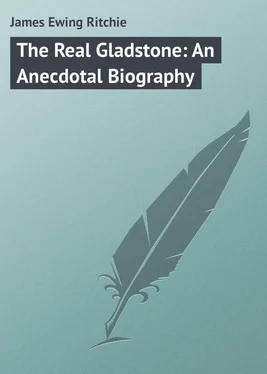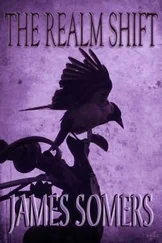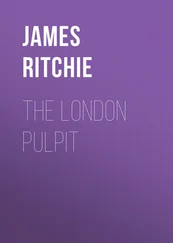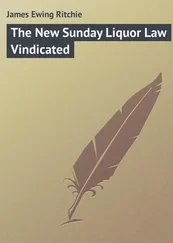James Ritchie - The Real Gladstone - An Anecdotal Biography
Здесь есть возможность читать онлайн «James Ritchie - The Real Gladstone - An Anecdotal Biography» — ознакомительный отрывок электронной книги совершенно бесплатно, а после прочтения отрывка купить полную версию. В некоторых случаях можно слушать аудио, скачать через торрент в формате fb2 и присутствует краткое содержание. Жанр: foreign_prose, на английском языке. Описание произведения, (предисловие) а так же отзывы посетителей доступны на портале библиотеки ЛибКат.
- Название:The Real Gladstone: An Anecdotal Biography
- Автор:
- Жанр:
- Год:неизвестен
- ISBN:нет данных
- Рейтинг книги:4 / 5. Голосов: 1
-
Избранное:Добавить в избранное
- Отзывы:
-
Ваша оценка:
- 80
- 1
- 2
- 3
- 4
- 5
The Real Gladstone: An Anecdotal Biography: краткое содержание, описание и аннотация
Предлагаем к чтению аннотацию, описание, краткое содержание или предисловие (зависит от того, что написал сам автор книги «The Real Gladstone: An Anecdotal Biography»). Если вы не нашли необходимую информацию о книге — напишите в комментариях, мы постараемся отыскать её.
The Real Gladstone: An Anecdotal Biography — читать онлайн ознакомительный отрывок
Ниже представлен текст книги, разбитый по страницам. Система сохранения места последней прочитанной страницы, позволяет с удобством читать онлайн бесплатно книгу «The Real Gladstone: An Anecdotal Biography», без необходимости каждый раз заново искать на чём Вы остановились. Поставьте закладку, и сможете в любой момент перейти на страницу, на которой закончили чтение.
Интервал:
Закладка:
But Mr. Gladstone was moving. When Lord John Russell brought in a Bill to admit Jews to Parliament, Mr. Gladstone supported it, though at one time against it.
In 1850 Mr. Gladstone wrote a letter to Bishop Hampden, which threw a good deal of light on his mental working. He wrote: ‘Your lordship will probably be surprised at receiving a letter from me. The simple purport of it is to discharge a debt of the smallest possible importance to you, yet due, I think, from me, by expressing the regret with which I now look back on my concurrence in a vote of the University of Oxford in the year 1836, condemnatory of some of your lordship’s publications. I did not take actual part in the vote, but, upon reference to a journal kept at the time, I find that my absence was owing to an accident. For a good many years past I have found myself ill able to master books of an abstract character, and I am far from presuming at this time to form a judgment on the merits of any proposition then at issue. I have learned, indeed, that many things which in the forward precipitancy of my youth I should have condemned are either in reality sound or lie within the just bounds of such discussion as justly befits a University. But that which (after a delay due, I think, to the cares and pressing occupations of political life) brought back to my mind the injustice of which I had unconsciously been guilty in 1836 was my being called upon as a member of the Council of King’s College in London to concur in a measure similar in principle with respect to Mr. Maurice – that is to say, in a condemnation couched in general terms, which really did not declare the point of imputed guilt, and against which perfect innocence could have no defence. I resisted to the best of my power, though ineffectually, the grievous wrong done to Mr. Maurice, and urged that the charges should be made distinct, that all the best means of investigation should be brought to bear on them, ample opportunity given for defence, and a reference then made, if needful, to the Bishop in his proper capacity of layman, as the Council were inexorable. It was only, as I have said, after mature reflection that I came to perceive the bearing of the case on that of 1836, and to find that by my resistance I had condemned myself. I then lamented that on that occasion, now so remote, I had not felt and acted in a different manner. I beg your lordship to accept this, the expression of my cordial regret.’ Dr. Hampden had published certain lectures which afterwards were strongly objected to by the Tractarian party, whose triumph led to a good deal of bitterness, hard to understand now.
Again, in March, 1865, when Mr. Dillwyn moved that ‘the present position of the Irish Church is unsatisfactory, and calls for the earliest attention of Her Majesty’s Government,’ Mr. Gladstone replied that they were not prepared to deny the abstract truth of the former part of the resolution, while they could not accept the resolution. The Irish Church as she then stood was in a false position. She ministered only to one eighth or one ninth of the community. The debate was adjourned, and not resumed during the remainder of the session; but the speech of the Chancellor of the Exchequer caused great excitement, and Mr. (afterwards Chief Justice) Whiteside promptly denounced it as fatal to the Established Church of Ireland. Sir Stafford Northcote wrote: ‘Gladstone made a terrible long stride in his downward progress last night, and denounced the Irish Church in a way that shows how by-and-by he will deal not only with it, but the Church of England, too.. was evidently annoyed that his colleagues had decided on opposing Dillwyn’s motion. He laid down the doctrine that the tithes were national property… It is plain that he must hold that the tithe of Wales, where the Dissenters are in a minority, does not properly belong to the Church; and by-and-by we shall find that he will carry the principle a great deal further. It is sad to see what he is coming to.’
Tory suspicion soon found a vent; an election was at hand, and Mr. Gladstone’s seat for Oxford University was in danger. As early as 1861 the question of his retirement had been mooted. In that year he wrote to the Rector of Exeter College: ‘I have never forgotten the ties which bind me to my kind and good-natured supporters in the University, and no prospect elsewhere could induce me to quit them, unless I could think that at a juncture like this they might, with every prospect of success, support a candidate who would fill my place to their full and general satisfaction… To quit Oxford under any circumstances would be to me a most sad, even if it ever became a prudent and necessary, measure.’
As a further illustration of Mr. Gladstone’s Liberal opinions, and his unfitness for Oxford, I quote from a letter of his to Bishop Wilberforce on Mr. Hadfield’s proposal in the House of Commons to abolish the declaration made by Mayors that they would not use their office against the Established Church. ‘As I apprehend the matter, no one is obliged to take this declaration at all. I took it myself last year, as Elder Brother of the Trinity House, in which I have no duty whatever to discharge, except, I believe, to appoint an “almsbody” once in five or ten years. As Chancellor of the Exchequer I have not taken it. An annual Act of Indemnity passes with your consent to dispense with it, and all who choose avail themselves of the dispensation. I put it to you that this declaration ought not to be maintained upon the Statute Book. If it is right to require of certain persons that they should declare something on behalf of the Established Church, the law, and not the individual, should define who those persons should be. An established legal præmunire of self-exception is fatal to the law. If you are right in saying (which I have never heard elsewhere) that men wish to escape the declaration in order that they may carry their municipal paraphernalia in state to Dissenting chapels, it is plain that they can do it now, and therefore the declaration cannot be maintained on the ground that it prevents them, for it does not. If I am told that the mere abstract existence of such a declaration, counteracted as it is by the indemnity, deters the flesh and blood of Dissenting Mayors from such a use of the paraphernalia , such a reply appears to me fanciful. In short, if this Bill is not to be supported, it appears to me better to profess thorough-going exclusiveness at once, and to say that nothing shall be yielded except to force, for that is what the whole matter comes to… It is quite obvious that if the consideration of these measures is to be approached in such a frame of mind, we shall be doing in our day simply what Eldon and Inglis did in theirs. I must say that is not my idea of my stewardship.’
Again, he writes to the Bishop: ‘The policy of the Church as an establishment to my mind is plain. She should rest on her possessions and her powers, parting with none of them, except for equivalents in another currency, or upon full consideration of pros and cons ; but outside of these she should avoid all points of sore contact with Dissenters. Each one of them is a point at which she as a dead mass rubs upon the living flesh, and stirs the hostility of its owner. It is no less due to her own interests to share them than it is to justice as regards the Dissenter to surrender these points – if surrender that is to be called which is so unmixedly to her advantage.’
In 1865 the Oxford University election resulted in the loss by Mr. Gladstone of his seat. The opposition to him was headed by Archdeacon Denison, on account of his conduct on the Education Question. Mr. Gladstone was defeated by Mr. Hardy, but he was defeated by those members of the constituency who had the least interest in education. Nearly all the professors, tutors, and lecturers voted in the minority, but were outnumbered by the country clergy. ‘Of course,’ writes Bishop Wilberforce to Mr. Gladstone, ‘if half of these men had known what I know of your real devotion to our Church, that would have outweighed their hatred to a Government which gave Waldegrave to Carlisle, and Baring to Durham, and the youngest Bishop on the Bench to York, and supported Westbury in denying the faith of our Lord. But they could not be made to understand the truth, and have inflicted on the University and the Church the gross indignity of rejecting the best, noblest, and truest son of each, in order to punish Shaftesbury’ – supposed to be Palmerston’s Bishop-maker – ‘and Westbury. You were too great for them.’
Читать дальшеИнтервал:
Закладка:
Похожие книги на «The Real Gladstone: An Anecdotal Biography»
Представляем Вашему вниманию похожие книги на «The Real Gladstone: An Anecdotal Biography» списком для выбора. Мы отобрали схожую по названию и смыслу литературу в надежде предоставить читателям больше вариантов отыскать новые, интересные, ещё непрочитанные произведения.
Обсуждение, отзывы о книге «The Real Gladstone: An Anecdotal Biography» и просто собственные мнения читателей. Оставьте ваши комментарии, напишите, что Вы думаете о произведении, его смысле или главных героях. Укажите что конкретно понравилось, а что нет, и почему Вы так считаете.












